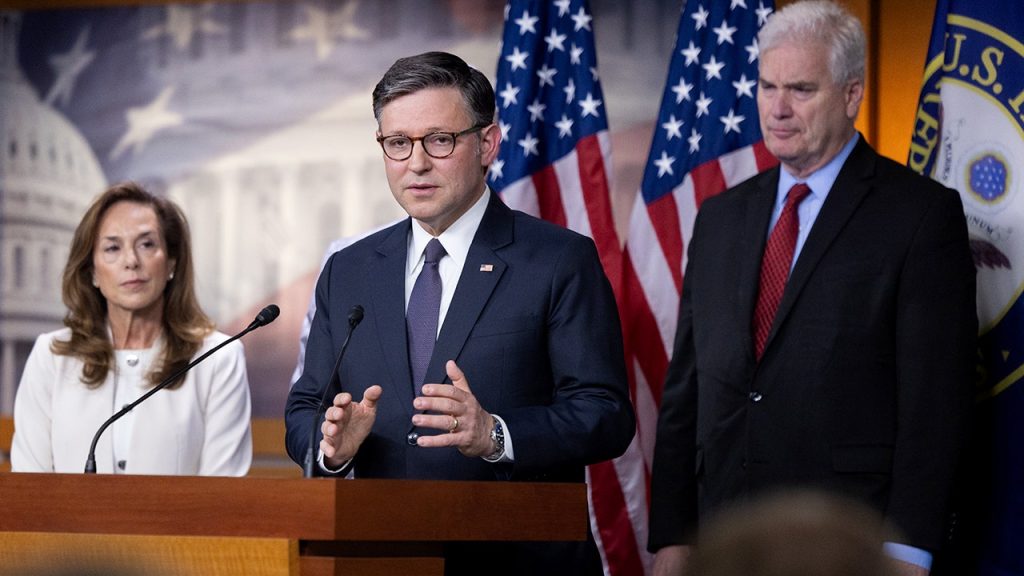The House GOP recently faced significant backlash after a controversial tweet urging Americans to “get off the sidelines.” The post, along with a subsequent bilingual message, incited strong reactions from various public figures and representatives, highlighting divisions within the party. Notably, criticisms came from within the Republican ranks, as well as from conservative commentators expressing frustration over legislative inaction since gaining a majority.
| Article Subheadings |
|---|
| 1) House Republicans Receive Backlash for Social Media Communication |
| 2) Internal Party Criticism and Accountability |
| 3) The Language Controversy: Bilingual Tweets Spark Debate |
| 4) The Call for Legislative Action: Pressure from Constituents |
| 5) Future Implications for the GOP and Public Perception |
House Republicans Receive Backlash for Social Media Communication
The House GOP’s recent tweet stating, “We need to get Americans off the sidelines,” has led to widespread criticism. This announcement, promoting a call to action, comes during a period where many constituents express frustration with legislative stalemate. Conservative leaders and commentators alike have pointed out this misstep, aligning themselves with the sentiment that the party fails to act on promises made during electoral campaigns. Rep. Marjorie Taylor Greene from Georgia articulated frustrations, noting that Americans had played their part in the electoral process by voting the GOP into majority, and it is now time for the party to deliver on its commitments.
Internal Party Criticism and Accountability
Republicans within the House are facing increasing pressure to engage more meaningfully with their bases. In a pointed critique, conservative commentator Mark Mitchell emphasized that voters, who rallied behind candidates in the last elections, feel neglected as promises are left unfulfilled. Additionally, the frustrations voiced by Rep. Brandon Gill about perceived pandering in tweets further underline internal disagreements regarding communication strategies. This discontent suggests that many Republicans are demanding more substantive actions rather than mere social media engagement.
The Language Controversy: Bilingual Tweets Spark Debate
A subsequent tweet from the House GOP account, which included messages in both English and Spanish, sparked yet another wave of backlash. Opponents, including Rep. Brandon Gill, criticized this approach as unnecessary and off-putting, arguing that Republicans should focus on the concerns of their primary electorate rather than what they perceive as catering to non-English speaking populations. The criticisms highlight a deeply rooted tension within the party regarding how to engage voters effectively and whether inclusivity can coexist with the core party message.
The Call for Legislative Action: Pressure from Constituents
Amidst these communications missteps, there has been a renewed call for greater legislative action from the GOP. Many Republicans believe that fulfilling the promises associated with the Trump administration’s “big beautiful bill” and other initiatives is critical not just for national policy but for sustaining their hold on power. Influential voices within the party have warned that failing to act could have dire consequences during future elections, as voter patience wears thin and dissatisfaction grows.
Future Implications for the GOP and Public Perception
The ongoing discontent among Republican constituents raises questions about the party’s future trajectory. With the GOP facing internal fractures and public criticism, strategists urge party leaders to foster unity while also addressing the concerns of their base. How the party responds in the coming weeks could determine not only its legislative agenda but also public perception heading into the next electoral cycle. As the pressure mounts, voters will be watching closely to see if their representatives can turn dissatisfaction into productive governance.
| No. | Key Points |
|---|---|
| 1 | House GOP tweet urging action received negative feedback from constituents. |
| 2 | Internal Republican criticism suggests a disconnect with their base. |
| 3 | Bilingual tweets led to a debate about pandering and effective communication. |
| 4 | Republican leaders are urged to prioritize legislative action over social media engagement. |
| 5 | The GOP faces challenges in maintaining public support leading to upcoming elections. |
Summary
The recent social media missteps by the House GOP serve as a critical reminder of the expectations laid upon political representatives by their constituents. As voices within the party voice dissatisfaction over inaction and messaging strategies, it is increasingly evident that fulfilling campaign promises and ensuring effective communication are paramount for the GOP’s future. With the stakes rising, party leaders must navigate these turbulent waters carefully to maintain their majority and win back trust among voters.
Frequently Asked Questions
Question: What is the significance of the recent tweet from the House GOP?
The tweet aimed to rally Americans to take action but received considerable backlash indicating dissatisfaction with the GOP’s inaction since gaining majority.
Question: How are internal criticisms affecting the House GOP?
Internal criticisms highlight a divide within the party, with representatives voicing concerns that the leadership is not adequately addressing the needs and opinions of their constituents.
Question: What are the implications of bilingual communication by the GOP?
The inclusion of bilingual language in GOP communications has sparked debates about whether this approach is effective or represents unnecessary pandering to non-English speaking voters.


